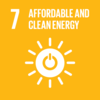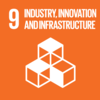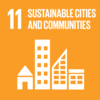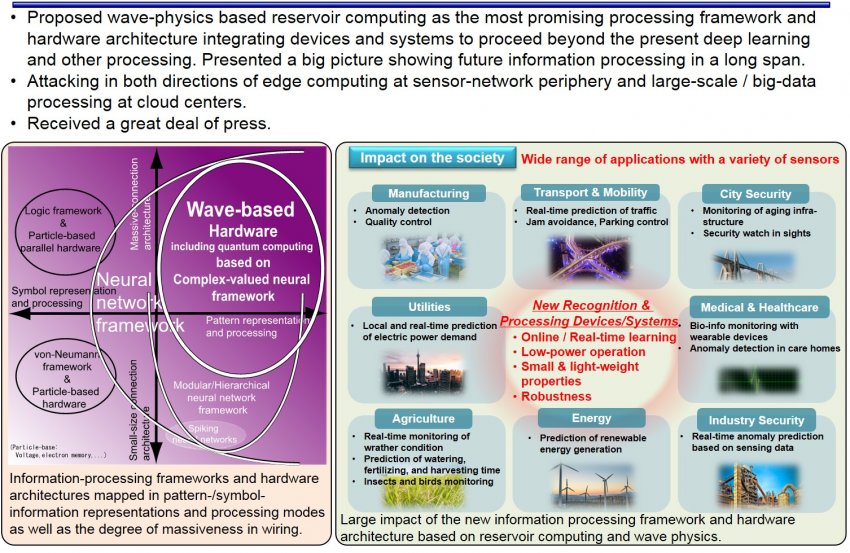Energy-Efficient Information Processing: Next-Generation Nano & Micro Devices and Systems


Akira Hirose
Graduate School of Engineering
Institute for Innovation in International Engineering Education Professor
Information technology forms the paramount foundation of the contemporary society. It is constantly evolving, as represented by such words as sensor networks, big data and deep learning, establishing a wider and more tolerant framework. In this evolutionary process, the most serious problem is a huge and rapidly increasing amount of energy consumed by the information systems. To solve this problem, it is required to make an investigation based on both device physics and system mathematics in an integrated manner. From this viewpoint, we clearly show the direction in which the next-generation nano and micro devices and systems should proceed. We are establishing a theoretical framework in science and technology that leads to practical energy-efficient information processing and its prototypes. Our recent achievements won several significant awards from academic societies such as the Institute of Electrical and Electronics Engineers (IEEE) and the Institute of Electronics, Information and Communication Engineers (IEICE), and have drawn attention from the society through wide newspaper coverage.
Related links
Research collaborators
- IBM Research Tokyo
Related publications
- Y. Katayama, T. Yamane, D. Nakano, R. Nakane, and G. Tanaka, "Wave-Based Neuromorphic Computing Framework for Brain-Like Energy Efficiency and Integration," IEEE Transcations on Nanotechnology, vol. 15, no. 5, pp. 762-769 (2016 September) DOI: 10.1109/TNANO.2016.2545690.
- G. Tanaka, R. Nakane, T. Yamane, D. Nakano, S. Takeda, S. Nakagawa, and A. Hirose, "Exploiting Heterogeneous Units for Reservoir Computing with Simple Architecture," Proceedings of the 23th International Conference on Neural Information Processing (ICONIP), pp. 187-194 (2016) DOI: 10.1007/978-3-319-46687-3_20.
- Akira Hirose, "Complex-Valued Neural Networks, 2nd Edition," Springer (2012).
- G. Tanaka, R. Nakane, T. Yamane, D. Nakano, S. Takeda, S. Nakagawa, and A. Hirose, "Exploiting Heterogeneous Units for Reservoir Computing with Simple Architecture," Proceedings of the 23th International Conference on Neural Information Processing (ICONIP), pp. 187-194 (2016) DOI: 10.1007/978-3-319-46687-3_20.
- Akira Hirose, "Complex-Valued Neural Networks, 2nd Edition," Springer (2012).
Related patents
- S.Takeda, D.Nakano, T.Yamane, US Patent Application Number 15/172843、"Reservoir Computing Device by External-Feedback Laser System,"2016/6/3.
- S.Takeda, D.Nakano, T.Yamane, US Patent Application Number "Photonic Reservoir Computing by Coupled Resonators Feedback Laser," 2017/4/20.
- S.Takeda, D.Nakano, T.Yamane, US Patent Application Number, "Simplification of readout of physical reservoirs by delay coordinate vectors," 2017/4/3.
- S.Takeda, D.Nakano, T.Yamane, US Patent Application Number "Photonic Reservoir Computing by Coupled Resonators Feedback Laser," 2017/4/20.
- S.Takeda, D.Nakano, T.Yamane, US Patent Application Number, "Simplification of readout of physical reservoirs by delay coordinate vectors," 2017/4/3.
Contact
- Akira Hirose
- Tel: +81-3-5841-6695
- Email: ahirose[at]ee.t.u-tokyo.ac.jp
※[at]=@















